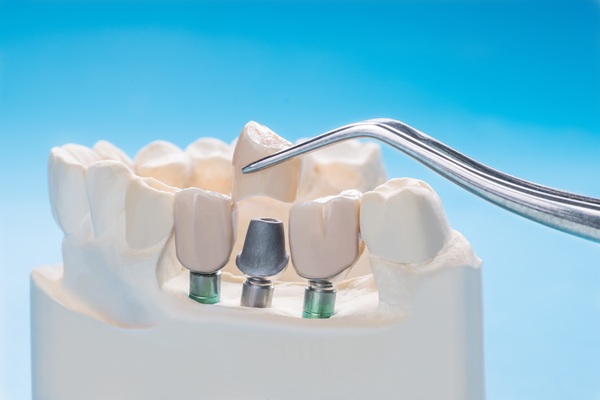 Does Invisalign really work? This treatment is often marketed as a more convenient alternative to braces, but some patients are concerned about its effectiveness. Invisalign® may sound too good to be true — patients do not have to worry about avoiding certain foods that may become stuck in traditional braces.
Does Invisalign really work? This treatment is often marketed as a more convenient alternative to braces, but some patients are concerned about its effectiveness. Invisalign® may sound too good to be true — patients do not have to worry about avoiding certain foods that may become stuck in traditional braces.
Does Invisalign really work?
Like traditional braces, Invisalign® is designed to correct crooked teeth, crowded teeth and gaps. Instead of periodically having wires tightened like with braces, Invisalign® patients are given a series of near-invisible aligners. Each successive set of aligners is designed to push the patient's teeth closer to their ideal alignment.
What factors cause Invisalign® not to work?
One of the advantages of Invisalign® is that it can be taken out when a patient needs to eat or brush their teeth. However, this advantage can quickly become a disadvantage when patients are non-compliant. Most dental professionals advise their patients that they need to wear their Invisalign® trays as close to 23 hours per day as possible.
Because it is easy to remove Invisalign® at any point, some patients go for several hours without wearing their aligners. Even in this relatively short period, it is possible to lose progress. Each time a patient goes without aligners, teeth can shift back to where they were before treatment. When done frequently, this can result in Invisalign® treatment not working.
Does Invisalign really work for all dental issues?
Invisalign® can be used to correct almost every issue that traditional braces can. However, for certain severe issues, a patient's dentist may recommend alternative treatment. For patients with the following issues, Invisalign® may not be effective:
- Extremely crowded teeth
- Teeth rotated more than 20 degrees
- Very large gaps between teeth
- Existing dental bridges or similar types of dental work
- Unusually shaped teeth
Before prescribing Invisalign® or a similar orthodontic treatment, a dental professional will thoroughly examine a patient's teeth to see whether Invisalign® is the right option.
Can Invisalign® cause tooth problems?
When used correctly, Invisalign® will not cause tooth problems. Patients do need to be very careful to brush their teeth before putting aligners back in. Because aligners fit very tightly to the teeth, they stop saliva from reaching the teeth's surface. Without saliva, food particles cannot be efficiently broken down, and plaque, cavities and other dental issues may occur.
In order to avoid potential problems, Invisalign® patients should make sure they brush and floss their teeth after eating and before placing the aligners. The prescribing provider will usually go over optimal dental hygiene with a patient before fitting them with their first set of aligners.
Check out what others are saying about our dental services on Yelp: Dental Services in Roswell, GA.
Conclusion
Patients who have been wondering, "Does Invisalign® really work?" may be relieved to know that with careful compliance and good dental hygiene, the answer is almost always yes. For patients interested in Invisalign® for achieving a better smile, it is a good idea to reach out to a dental professional to make an appointment.
Request an appointment or call Roswell Dental Smiles at 770-238-1209 for an appointment in our Roswell office.
Recent Posts
There has been a lot of talk about dental implants in recent years. Dentists recommend them, and patients benefit from the results of the treatment. Implants restore the full function of the mouth and revitalize smiles. People can enjoy newfound self-esteem and the self-image and health they have been looking for. You may wonder whether…
If you want to improve your smile’s appearance, a smile makeover is a way to go. It is advisable to prepare adequately for this procedure because it increases the desired outcome. Since there are many makeover choices, it is better to take the dentist’s advice and work with the treatment plan that they recommend.The procedures…
Getting the right smile makeover is a form of dental rescue for your eroded enamel. It can be annoying at first, but without treatment, it can be a serious dental issue. Among the causes of tooth or enamel erosion, drinking soda is the most damaging. Drinking such sugary and acidic beverages can wear down your…


